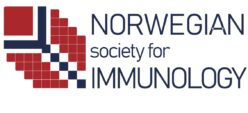
In our next seminar from the NSI Rising Star Seminar series, we will be hosting Camilla Engblom (Karolinska Institutet, Stockholm, Sweden) with a talk on “Mapping B and T cell receptors in tissues using spatial transcriptomics”.
Look forward to seeing you there!
Meeting details:
Thursday, 15. august, 13.00
https://uib.zoom.us/j/64667274238?pwd=aNkElnisAOMYP9WaMaVbaGb5lXtG0L.1
Meeting ID: 646 6727 4238
Password: guf3QPtA
Abstract:
B and T cells perform functions critical to human health and they develop, differentiate, and expand in spatially distinct sites across the body. Both B and T cells express clonal heritable antigen receptors that confer exquisite molecular (i.e., antigen) specificity. Antigen receptors can be defined by sequencing, but these methods require tissue dissociation, which loses the anatomical location, and the surrounding functionally relevant environmental cues. Linking specific clonal sequences to their molecular and cellular surroundings, i.e., ‘clonal niche’, could help us understand and harness B and T cell activity. A technological bottleneck has been to capture the location of antigen receptor sequences, and by extension B and T cell clonal responses, directly within tissues. To address this, we recently developed a spatial transcriptomics-based approach (Spatial VDJ) and associated computational pipelines to reconstruct B and T cell clonality in human tissues. Using this technology, we spatially resolve B and T cell receptors within immune and tumor tissues, as well as B cell clonal evolution within germinal centers. Combined, Spatial VDJ links B and T cell clonal responses to their microenvironment with applications to various immune-related pathologies, including infections, cancer and autoimmune diseases.
Bio:
Dr. Camilla Engblom is a SciLifeLab Fellow and a recently appointed Assistant Professor in the Division of Immunology and Allergy and the Department of Medicine, Solna at the Karolinska Institutet (KI). She received her PhD in Immunology from Harvard University in 2017 focusing on long-range cancer-host interactions involving myeloid cells (Mikael Pittet’s lab at Massachusetts General Hospital/Harvard Medical School). As a MSCA postdoctoral fellow in Jonas Frisén’s lab (KI) in a collaboration with Joakim Lundeberg’s lab, Dr. Engblom developed a spatial transcriptomics-based tool (Spatial VDJ) to map B cell and T cell receptors within human tissues. Located at SciLifeLab and the Center for Molecular Medicine (KI), the Engblom lab’s main research focus is to spatially and functionally resolve B cell clonal dynamics during cancer.
Key publications:
- C. Engblom*/K. Thrane*/Q. Lin*, et al. Science. (2023).
- Zilionis R*, Engblom C*, Pfirschke C*, Savova V*, et al. Immunity. 2019. May 21;50(5):1317-1334.
- Engblom C*, Pfirschke C, et al. Science. 2017 Dec 1;358(6367).
- Pfirschke C*, Engblom C*, et al. Immunity. 2016 Feb 16;44(2):343-54.
